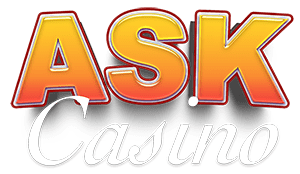In ‘Mastering Betsafe Cash Out: Your Guide to Strategic Betting,’ the article offers expert advice on effectively utilizing the cash out feature at Betsafe, an online betting platform. Users can locate the ‘cash out’ option in the top right-hand corner of their selected bets and add them to their betslip. If you want more details about betsafe, you can check this Betsafe com review which gives more insights.
While this feature is available for selected sporting markets, it is important for users to exercise caution as the cash out price can fluctuate. By employing strategic approaches and considering potential returns, users can make informed decisions when utilizing Betsafe’s cash out feature.
Understanding Betsafe Cash Out: A Comprehensive Overview
Understanding Betsafe Cash Out provides a comprehensive overview of the features and risks associated with this strategic betting option.
One of the benefits of Betsafe Cash Out is the option for partial cash out. This feature allows customers to choose how much of their original stake to cash out, giving them more control over their bets.
By cashing out a portion of the deposited bet and letting the remaining amount stand as normal, bettors can secure some profit while still having a chance to win the full amount. This strategic use of cash out can be particularly useful in situations where the outcome of the bet is uncertain or when bettors want to lock in some profit before the event has ended.
The Mechanics of Betsafe Cash Out: How It Works
Customers can cash out a portion of their original stake and let the remaining amount be normal when using Betsafe’s partial cash-out feature. This feature allows bettors to have more control over their bets and make strategic decisions based on the game’s current state or match.
However, the psychology of cashing out should be taken into consideration. Understanding the emotional factors involved is crucial in making the right decision. Some bettors may need to cash out early to secure a guaranteed profit or minimize potential losses, while others may prefer to let the bet run its course in hopes of a larger payout.
Analyzing the impact of cashing out on long-term profitability is also important. While cashing out can provide immediate rewards, it may also decrease the overall profitability in the long run, as the cash out price often has a small house edge that benefits the bookmaker.
Therefore, it is essential to use the cash out feature strategically and consider its potential impact on returns.
Maximizing Your Returns: Strategic Approaches to Betsafe Cash Out
To maximize returns when using Betsafe’s cash out feature, bettors should carefully analyze the game’s current state or match and make strategic decisions based on that information. By considering the following factors, bettors can increase their chances of minimizing losses and maximizing profits:
Evaluate the momentum of the game or match: Assess which team or player has the upper hand and whether there are any significant shifts in momentum.
Monitor the time remaining: Take into account the remaining time in the game or match and consider how it may impact the outcome.
Analyze the odds: Continuously review the odds offered for the cash out option and compare them to the original bet to determine if a profitable opportunity exists.
The Pros and Cons of Betsafe Cash Out: Making Informed Decisions
One advantage of utilizing the Betsafe cash-out feature is the ability to secure a profit before the outcome of a bet is determined. This strategic option allows bettors to take control of their wagers and make informed decisions based on the current state of play.
By cashing out, bettors can lock in their winnings or minimize potential losses, providing security and flexibility. Additionally, Betsafe’s quick processing of cash out requests ensures that customers can act swiftly on their betting strategies.
However, evaluating the risks and benefits of using the cash-out feature is important. While it offers convenience and profit potential, cashing out may result in lower returns than letting the bet run its course. It requires a keen understanding of the game and making timely decisions.
Therefore, using the cash-out feature strategically and considering its potential impact on returns is recommended.
Effective Strategies for Betsafe Cash Out: Tips and Tricks
Using the Betsafe cash-out feature strategically can give bettors an advantage in securing profits or minimizing potential losses. When it comes to cashing out at Betsafe, there are several factors to consider and timing plays a crucial role.
Here are some key points to keep in mind:
-
Assess the current state of the game: Before cashing out, bettors should evaluate the performance of the teams or players involved. If the situation looks favorable, letting the bet run its course and potentially maximize profits may be wise.
-
Monitor the odds: Keeping a close eye can help bettors make informed decisions. If the odds are fluctuating in your favor, it might be a good time to cash out and secure some profit.
-
Trust your instincts: Gut feelings can play a role in cashing out. If you strongly feel that the bet’s outcome may change, it could be a good opportunity to cash out and minimize potential losses.
Timing your cash out at Betsafe is crucial for maximizing profits or minimizing losses. By considering factors such as the game’s current state, monitoring the odds, and trusting your instincts, bettors can make strategic decisions that lead to successful cash outs.
Avoiding Pitfalls: Common Mistakes to Watch Out for When Using Betsafe Cash Out
Timing plays a crucial role in avoiding common pitfalls when utilizing the cash out feature at Betsafe. One of the biggest mistakes to avoid is making emotional decisions. It’s easy to get caught up in the excitement of a winning bet or the fear of a losing one, but it’s important to stay objective and consider the potential returns.
Calculating potential returns is another key factor in making smart cash out decisions. By assessing the current odds and comparing them to the original stake, bettors can determine if cashing out is right.
It’s important to remember that cash out prices can change at any moment, so taking the time to analyze the situation and make an informed decision is essential.
James Reynolds Johnson is a seasoned expert in the world of online casinos. With over 10 years of experience in the industry, James has a wealth of knowledge about the latest casino games, trends, and technologies. He has worked with some of the top online casinos in the world, providing expert analysis and advice on everything from game selection to payment methods. James is passionate about helping players find the best online casinos that offer fair games, excellent customer support, and generous bonuses. When he's not writing or researching, James enjoys playing blackjack and poker.







